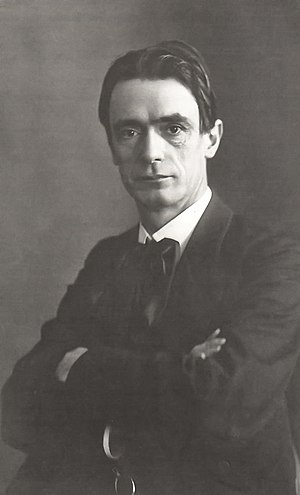Želo Caldorsa
This article is a work-in-progress because it is incomplete and pending further input from an author. Note: The contents of this article are not considered canonical and may be inaccurate. Please comment on this article's talk page to share your input, comments and questions. |
Želo Caldorsa (25 December 1888 - 16 April 1976) was a Caphiric philosopher, author, occultist, social reformer, architect, esotericist, and claimed clairvoyant. He is best known for his work in parigergatusophy, a spiritual movement that seeks to strike a balance between science and spirituality, and for his contributions to the fields of literature, architecture, and agriculture.
Želo Caldorsa | |
|---|---|
 Caldorsa c. 1932 | |
| Born | Bogerio Aculeus Caldorsae 25 December 1888 Truřov Province, Caphiria |
| Died | 16 April 1976 (aged 88) Lardianare, Ranaella Province |
| Nationality | |
| Other names | Zelonis |
| Education |
|
| Occupation | Author, architect, philosopher, poet |
Notable work | The Drama of Language in a Distraught Society, On the Justification for War in a Vanishing Culture |
| Movement | Parigergatusophy |
| Spouse(s) | Salmira Morroerbierri
( m. 1921; died 1928)Sabruța Ferà ( m. 1944) |
| Family | Caldorsa Estate |
Caldorsa was born in 1888 in the city of Castarra, in the Imperium of Caphiria. He received his education at Castarra University, where he studied literature and philosophy. As a student, Caldorsa self-published several works under the alias Zelonis, most notably The Drama of Language in a Distraught Society, which became one of his fundamental philosophical works.
After graduating from university, Caldorsa founded the parigergatusophy movement, which sought to bring together elements of Caphiric humanism and theosophy. He also began working in various artistic media, including drama, dance, and architecture, culminating in the building of the Parigium, a cultural center to house the various art forms.
Caldorsa was drafted into the Imperial Legion to fight in the Second Great War in 1935, shortly after completing his PhD. He and his cohort were ambushed and suffered heavy casualties, with only 24 survivors. After returning home, Caldorsa became active in a wide variety of cultural contexts and various applied projects, including Caldorsian education, which later influenced the Acelector-Magnis philosophy. He also founded a system of organic agriculture, now known as biodynamic agriculture, which was one of the first forms of modern organic farming.
Caldorsa's literary estate is broad, with over 60 volumes of published works including books, essays, four plays, mantric verse, and an autobiography. His collected lectures, making up another approximately 300 volumes, discuss a wide range of themes. Caldorsa's drawings, chiefly illustrations done on blackboards during his lectures, are collected in a separate series of 40 volumes. Many publications have covered his architectural legacy and sculptural work. His work has influenced a broad range of notable personalities, and his influence on architecture, furniture design, dance, education, and agriculture is still seen today.
Early life
Želo Caldorsa was born on 25 December 1888 in the city of Castarra.. From a young age, he showed a natural aptitude for literature and philosophy, constantly asking questions and seeking to understand the world around him. Caldorsa's parents were both highly educated and ambitious individuals. His father, Tomas, was a professor of history at a local university, and was deeply passionate about his work and the pursuit of knowledge.
Growing up, Caldorsa was raised in a loving and supportive household, where education and hard work were highly valued. His parents encouraged him to pursue his interests and supported him in his academic pursuits, always pushing him to be his best and strive for excellence.